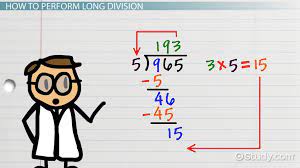I wrote a post, “Do Sellers Really Understand How Businesses Work.” I wanted to dive more deeply into what this means.
In the article, I talked about understanding our customers business strategies, purpose, priorities. I talked about understanding the structure and organization of our customers, learning how they work together to achieve their goals. In other posts I’ve talked about how we apply systems thinking both to better understand our customers businesses, but also to help them improve, change, and grow.
Additionally, I talked about how we leverage financial reporting and analyst sessions to better understand our customers, their performance challenges, and their priorities, aspirations. I suggested people look at 10-Ks, other financial reports, and listen to analyst meetings.
A number of people reached out to me, “We provide tools to help the sales person do this. We scrape the web, do company analysis, and provide financial analysis, so the rep doesn’t need to do that work. We give them the Answers!” And there are some great solutions that do an outstanding job in providing the answers sales people can leverage in working with customers. I’m a great fan, and user of these systems.
But with one caveat.
The answers are not very helpful, unless you know how things work and how they created the answers we see.
Let me use an analogy.
Imagine being back in grade school, learning how to add, subtract, multiply, and divide. There are two approaches. One you have to think about how to develop the answers, as a result you have a better understanding about how to think about the problems, and how to find answers in any kind of mathematical analysis. For example, you might have been asked, “Divide 965 by 5.” Working it out by hand, you learned how to do this:
Alternatively, you could use a calculator, typing in 965 divide by 5, and, by magic, you get the answer, 193! You have no idea about the logic and thought process to develop the answer, you just know the answer, because the calculator told you that.
As we look at complex problems, as we look at helping our customers, understanding their problems and how to arrive at answers to their problems, knowing the “answer” isn’t helpful. It’s more helpful to understand the issues that went into creating the answer.
In doing the financial analysis, it’s not useful to just know revenue, profitability, profit margins, YoY growth. They tell you very little. But if you know how they got to those results, if you started to see margin erosion, cashflow challenges, slowing growth, you can start understanding what creates the numbers.
Likewise, it’s not useful to understand the problem, it’s better to understand what caused the problem, why it occurred, how likely it is to continue.
Sometimes, we don’t have the answer, let’s imagine our calculator’s batteries went dead, but we still have to figure out the answers. If we didn’t know how to do long division, we could never figure out the answer..
Each customer situation is different, and it changes from moment to moment. The answers that may have been correct in the past, may no longer be relevant. We have to know how to figure it out.
We can never know the answers to every situation. We can never have the right script, the right words, that will address every situation we face. We never will have the answers supplied to us, addressing every question or situation we encounter.
We, also, know there are multiple ways to generate the same answer. If we don’t understand the different ways one might get an answer, we don’t have the ability to understand what created the answers and how do deal with it.
The most critical skill we can have is the ability to “figure things out,” the ability to leverage curiosity, critical thinking, collaborative conversations, problem solving to help our customers figure things out.
And this ability to know how to figure out the answers, to know how things work, enable us to leverage the tools that give us the answers much more effectively. Rather than parroting the data, sounding smart but know knowing what it means, we know what drove the answers and can engage our customers in more meaningful ways.
Knowing how we get to the answers is far more important than knowing the answers. Are you making sure you are training and coaching your people in how to figure things out, or are you just giving them the answers?
Afterword: For those that want to follow the Business Acumen/Systems Thinking series, click on the link for the collection.

Leave a Reply